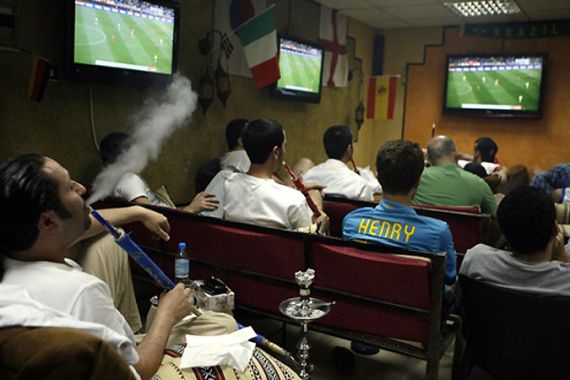Al Jazeera calls for jamming probe
Network calls on Jordan for a full investigation into disruptions of its signal during the football World Cup games.

While denying accusations that it jammed Al Jazeera Satellite Network’s signal during World Cup games, the Jordanian government agreed on Saturday to co-operate with an investigation into the claims, provided it is done by a team of independent experts.
The Jordanian offer followed a report in the UK-daily Guardian alleging that “secret documents” prove that Jordan deliberately jammed Al Jazeera’s broadcast of the World Cup games. The newspaper reported that the jamming was “unlikely to have been done without the knowledge of the Jordanian authorities” and pointed to Jordanian animosity toward Al Jazeera as the reason behind the interference.
The Jordanian response, issued via Petra, the state’s official news agency, called on Al Jazeera to present evidence of the allegations.
Sunday’s letter from Al Jazeera Sports reiterates the network’s earlier statement that it had conducted a thorough analysis of the incidents using reputable international agencies to determine the location from which the disruptive signals were sent.
The Guardian‘s Middle East affairs editor backed the Network’s conclusions, telling Al Jazeera on Thursday that the documents used to report his newspaper’s story were “authentic and undeniable”.
Collapsed deal
At the heart of the signal jamming incident is a deal between Al Jazeera and the Jordanian government, which failed just days before the June games.
“Four days before the kick off of the matches, Al Jazeera made an offer, demanding $8m for the broadcast rights of 20 games of its choosing, and over $50,000 for the broadcast on each screen that would have been placed in underprivileged areas,” and anonymous Jordanian official told AFP.
He said the Jordanian government declined the offer due to cost, and Al Jazeera, which had exclusive pay-TV rights to broadcast World Cup matches across the Middle East from North Africa to Iran, refused to broadcast the games to a select number of screens free of charge.
The signal interruptions frustrated millions of viewers across the Middle East and North Africa, who had to deal with pixelated, fuzzy images, blank screens and game commentary in wrong languages.